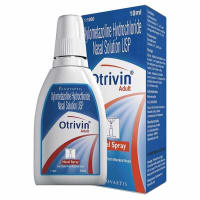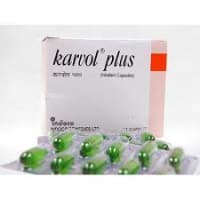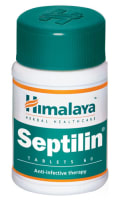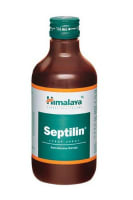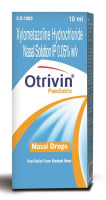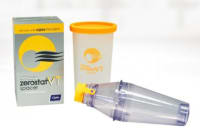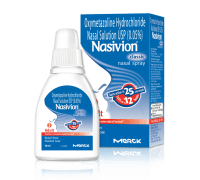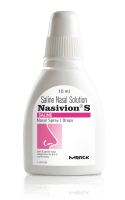NOTICE: unsafe with : Alcohol
USED FOR:
Nasal allergy symptoms
Nasal congestion (blocked nose)
Allergic skin conditions
COMPOSITION:
Cetirizine (NA)
Pseudoephedrine (NA)
Therapeutic Uses:
respiratory

CAUTION
Citimed CD Tablet may cause excessive drowsiness and calmness with alcohol.

Unknown. Human and animal studies are not available. Please consult your doctor.

Citimed CD Tablet is probably safe to use during lactation. Limited human data suggests that the drug does not represent a significant risk to the baby.

SAFE
Citimed CD Tablet does not usually affect your ability to drive.

CAUTION
Citimed CD Tablet should be used with caution in patients with kidney disease. Dose adjustment of Citimed CD Tablet may be needed. Please consult your doctor.Use of Citimed CD Tablet is not recommended in patients with severe kidney disease.

Citimed CD Tablet is probably safe to use in patients with liver disease. Limited data available suggests that dose adjustment of Citimed CD Tablet may not be needed in these patients. Please consult your doctor.
Uses of Sodium Chloride
Sodium Chloride is used in short term fluid replacement after trauma, dehydration and irrigation solution for eye/nose.
Uses of Cetirizine
Cetirizine is used in the treatment of nasal allergy symptoms and allergic skin conditions.
How to use Sodium Chloride
Your doctor or nurse will give you this medicine. Kindly do not self-administer.
How to use Cetirizine
Take this medicine in the dose and duration as advised by your doctor. Swallow it as a whole. Do not chew, crush or break it. Citimed CD Tablet may be taken with or without food, but it is better to take it at a fixed time.
How Electrolyte P Infusion works
Sodium Chloride works by replacing fluid loss.
How Citimed CD Tablet works
Cetirizine is an antihistaminic medication. It treats allergy symptoms such as such as itching, swelling, and rashes by blocking the effects of a chemical messenger (histamine) in the body.
Common Volume overload.
Common Sleepiness.
Expert advice for Sodium Chloride
Your electrolyte levels in blood and other parameters (such as blood pressure etc.) will be monitored regularly as you receive intravenous sodium chloride.
Tell your doctor if you have disorders of the kidneys, lungs, problems of the heart related to impaired pumping of blood (congestive cardiac disorders), high blood pressure or pregnancy-related blood pressure problems (pre-eclampsia), fluid retention problems  or swelling in hands, ankles or feet.
Seek immediate medical attention if you experience any unwanted swelling, trouble in breathing, muscle cramps, and/or weakness, fits, nausea, vomiting or stomach pain.
Tell your doctor if you are or planning to become pregnant or are breastfeeding.
Do not take if you are allergic to sodium chloride or any of its ingredients.
Do not give to patients with excess fluid or sodium in the space outside body cells (extracellular hyper hydration or hypervolemia).
Do not give to patients with abnormally low levels of sodium or chloride in blood (hyponatremia, hypochloremia), fluid and sodium retention problems or edema (swelling).
Do not give to patients with congestive heart failure (heart failure resulting in fluid build-up in lungs and other body tissues), severe liver and kidney functioning problems.
Expert advice for Cetirizine
Do not drive or operate machinery after taking cetirizine because you may feel sleepy.
Avoid alcohol intake while taking this drug.
Consult your doctor if you experience any of these side effects: changes in vision, severe dry mouth, trouble urinating, constipation or drowsiness.
Do not start or continue the cetirizine tablets:
If you are allergic (hypersensitive) to cetirizine or any of the other ingredients of cetirizine tablet.
If you have severe kidney problem or severe liver problem.
If you are pregnant or breast feeding.
Doctor’s advice should be considered before taking cetirizine tablets in case of any following disease conditions such as fits, severe kidney impairment, intolerance to sugars.
Q. Is sodium chloride soluble in water?
Sodium chloride is soluble in water
Q. Is Sodium Chloride acidic or basic?
Sodium Chloride is a neutral salt (neither acidic nor basic)
Q. Is Sodium Chloride ionic or covalent?
Sodium Chloride is an example of ionic bonding, where the molecule is formed by ionization of participating atoms and attraction between them
Q. Does Sodium Chloride expire?
Normally, Sodium Chloride does not have an expiry date if stored under appropriate conditions
Q. Is Sodium Chloride polar?
Sodium Chloride is ionic, which is considered highly polar
Q. Is Sodium Chloride an antioxidant?
Sodium Chloride does not possess antioxidant property.
Q. Is cetirizine/ Alerid/ Alerid syrup an antihistamine/antibiotic/steroid?
Cetirizine is an antihistaminic drug. It is not an antibiotic or steroid
Q. Is cetirizine/ Alerid D banned?
It is available in India and should be taken as advised by doctor
Q. Can you take cetirizine for prickly heat?
Cetirizine can be used for prickly heat to reduce the itching. Patients should follow the advice of the doctor regarding its use
Q. Can I take cetirizine with high blood pressure?
Patients with high blood pressure can take cetirizine. Patients should follow the advice of the doctor regarding its use
Q. Can I take cetirizine with antibiotics/ azithromycin/ citalopram/ sertraline?
Yes, as there are no expected reactions with cetirizine. Always consult your doctor for the change of dose regimen or an alternative drug of choice that may strictly be required
Q. Does cetirizine make you gain weight?
It is rarely seen, but there is a possibility that cetirizine, like other anti-histamines might cause gain in weight
Q. Is cetirizine/ Alerid safe?
Cetirizine/ Alerid is safe at the prescribed dose by the doctor. Patients should follow the advice of the doctor regarding its use
Q. Is cetirizine good for cold/ used for sore throat/ allergic reaction/itching/hives?
Cetirizine is used to treat cold or allergy symptoms such as sneezing, itching, watery eyes, or runny nose. It is also used to treat hives, but not used for sore throat. Patients should follow the advice of the doctor regarding its use
Q. How long can I take cetirizine for?
Patient should take cetirizine as directed by doctor
Q. Can I take cetirizine with paracetamol/ aspirin/ ibuprofen/ DayQuil/ prednisone/ Benadryl?
Cetirizine can be taken along with paracetamol, aspirin, ibuprofen, or prednisone. However, taking Benadryl and Dayquil along with cetirizine can increase the drowsiness. Always consult your doctor for the change of dose regimen or an alternative drug of choice that may strictly be required
Q. Can I take cetirizine with loratadine/ diphenhydramine/ brompheniramine/ fexofenadine?
No. Patient should not take cetirizine with these drugs as they are from same category of antihistamines. Patients should follow the advice of the doctor regarding its use
Q. Does cetirizine make you sleepy or cause drowsiness?
Patient may feel sleepy after taking cetirizine. Always consult your doctor
Q. Does cetirizine contain diphenhydramine/pseudoephedrine/aspirin/acetaminophen (paracetamol)?
No. Cetirizine does not contain diphenhydramine/pseudoephedrine/aspirin. However doctor may prescribe cetirizine in combination with these drugs.
Q. Can I take Cetirizine with Betahistine?
Cetirizine should not be taken with Betahistine as it has antihistamine action and Betahistine has histamine like action and using the two medicines together may lower the efficacy of either of them.
Uses of Pseudoephedrine
Pseudoephedrine is used in the treatment of nasal congestionIt is also used to treat sinus and upper chest congestion.
How to use Pseudoephedrine
Take this medicine in the dose and duration as advised by your doctor. Swallow it as a whole. Do not chew, crush or break it. Citimed CD Tablet may be taken with or without food, but it is better to take it at a fixed time.
How Citimed CD Tablet works
Pseudoephedrine is a nasal decongestant. It narrows the small blood vessels, which provide temporary relief from congestion or stuffiness in the nose.
Common Nausea, Vomiting, Headache, Dryness in mouth, Hypersensitivity reaction, Restlessness, Sleep disturbance.
Expert advice for Pseudoephedrine
ï‚·Inform your doctor if you have heart, blood vessel, liver, kidney, bladder or prostate disorder.
ï‚·Seek immediate medical attention if you experience difficulty in breathing, swollen lips or skin, severe rashes and itching, hallucinations, restlessness or sleep disturbances.
ï‚·Inform your doctor if you are taking or have recently taken medication for any mental illness, high blood pressure or glaucoma (increased pressure inside the eye that causes visual problems).
Do not take if allergic to pseudoephedrine or any of its ingredients.
Do not take if medication is going for any mental disorder, nasal sprays for decongestion, high blood pressure.
Do not take if suffering with kidney, heart, liver, blood vessel disorder or diabetes, hyperthyroidism, phaeochromocytoma (a rare tumor of the adrenal glands) or glaucoma.
Do not take if below below 12 years.
Do not take if Pregnant and breastfeeding.
Q. Can I take pseudoephedrine for allergies?
Pseudoephedrine does give symptomatic relief from seasonal allergic conditions such as runny nose and nasal decongestion.
Q. Can I take pseudoephedrine with ibuprofen?
Yes. Ibuprofen may relieve fever experienced during cold.
Q. Can I take Pseudoephedrine with Tamsulosin?
Pseudoephedrine and Tamsulosin are not known to have any meaningful interactions. However, they act by opposite mechanisms and produce opposite effects and hence you should consult your doctor before taking these medicines together because one can decrease the effect of the other.


 Citimed CD Tablet
Citimed CD Tablet  Bookmark
Bookmark
